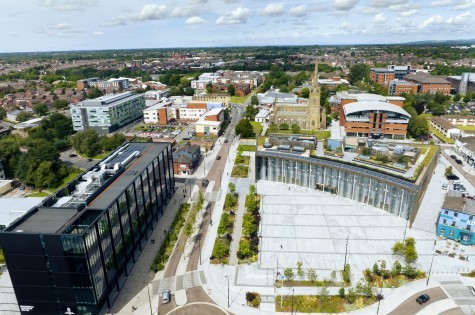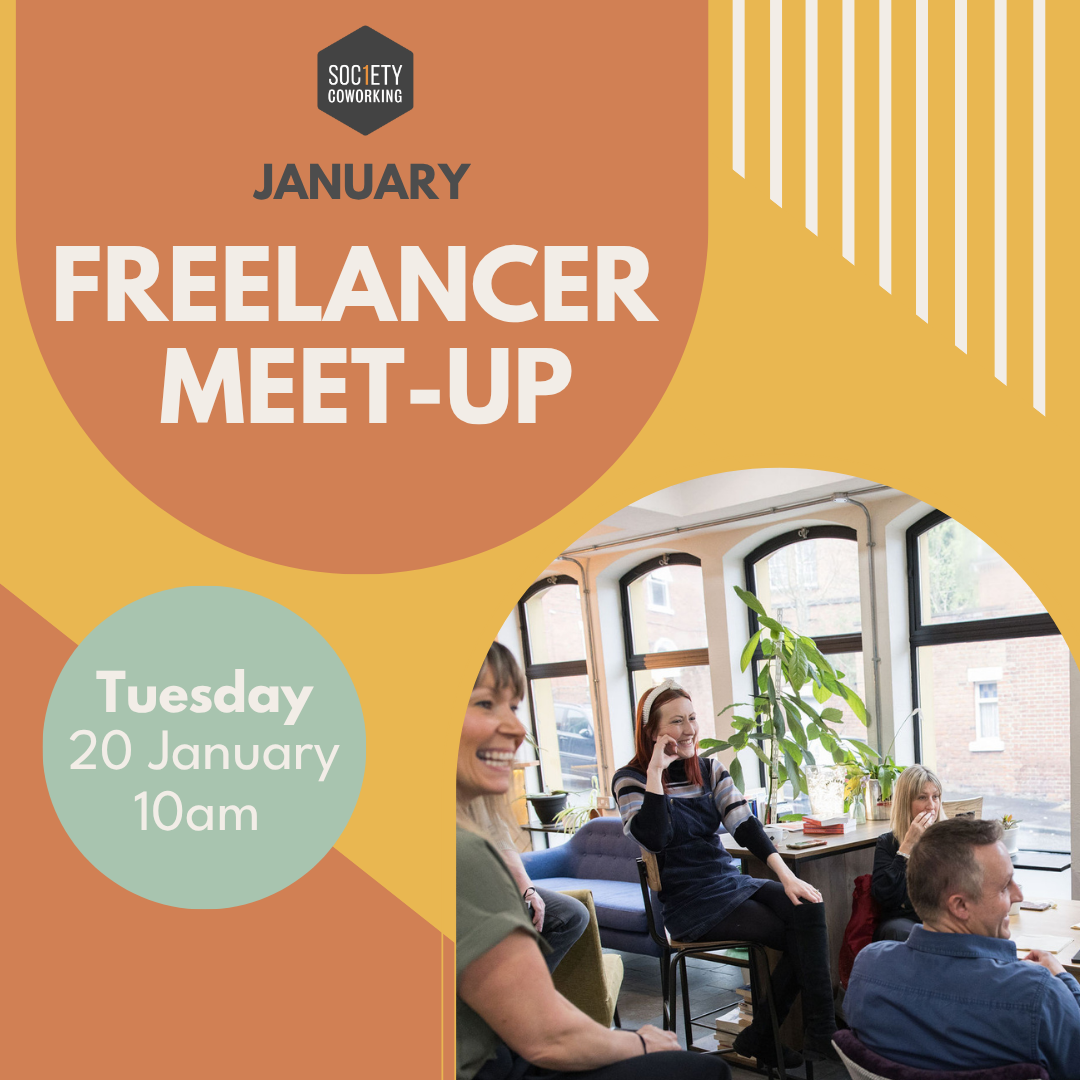Inspiring Leaders – Dame Carolyn McCall, DBE – chief executive of ITV
Linda Walmsley is a professional interviewer and business owner of Ribble Valley based recruitment search and selection firm, Walmsley Wilkinson Associates. During 2019 she is undertaking a series of interviews with Business Leaders who have innovated within their field of expertise and have warranted the description of being an inspiring leader.
Linda had the pleasure of working with Dame Carolyn McCall during her 14 years with Guardian Media Group.
Profile
Dame Carolyn McCall, DBE who is married to Peter and has three children, became the first female Chief Executive of ITV in January 2018.
In 1986 she joined The Guardian Media Group, where she progressed from within advertising sales to become CEO.
In 2008, she was named Veuve Clicquot Business Woman of the Year and appointed Officer of the Order of the British Empire (OBE) in the 2008 Birthday Honours for services to women in business.
Carolyn was appointed as the chief executive of easyJet in 2010 (one of five female CEOs of a FTSE 100 Index company) and during her tenure, the airline's shares almost quadrupled. In 2014, she was awarded a Doctor of Science Honoris Causa by Cranfield University in recognition of her outstanding contribution to the aerospace industry and her distinguished achievements in international business and was appointed Dame Commander of the Order of the British Empire (DBE) in the 2016 New Year Honours, for services to the aviation industry.
Over the years, she has served as a non-executive director at a number of businesses including Lloyds TSB, New Look, Tesco, Burberry Group and the Department for Business, Energy and Industrial strategy
Carolyn is leading the ITV strategy to be “More than TV” and is focusing on three key areas: - strengthening the integrated producer broadcaster; growing UK and Global production and creating a scaled Direct to Consumer business.
Interview
What were your career aspirations when you were younger?
I don't think I knew but I was brought up abroad and there was a program on TV called Police Woman with Angie Dickinson and I remember thinking I want to do something like that, because she was really strong and dynamic. I didn't really have aspirations, but I was brought up in a family where my mum worked, and my dad worked, so I think it was just about wanting to work. I knew I wanted to be independent and I knew I wanted to work.
Tell us about your first job?
My very first job was actually teaching. I did a postgraduate in education after my degree and I went to Holland Park Mixed Comprehensive, where I taught secondary school. I left there, because they were amalgamating with other schools and they were laying off very experienced teachers which I really didn't approve of. They were offering rubbish teachers like me a job. I had hardly any experience, so they were cutting costs and I thought that was wrong and if that's what teaching was going to be about, then I didn’t want to pursue it. I then did my master’s degree in politics and worked at Costain whilst I was completing my studies. My first job really was The Guardian where I started as a planner and that's obviously where we met, Linda.
Was there a Who or a What that inspired you to develop a career in business?
I think the What. I remember being at my newcomer's lunch at The Guardian and Peter Preston who was the then editor had a long conversation with me about why we didn't have a Sunday newspaper at the time, that was 1986 and it was a really good conversation. I remember coming out that room thinking this is amazing. I had regularly read the Guardian, so I couldn't believe that he was the editor and I was a 24-year-old planner. I was thinking this is an amazing place because anyone will talk to anyone, it's very open, it was very non-hierarchical, and it just felt like the culture was really right for me. So that was the What, it was the culture of the Guardian and the purpose of the Guardian; the fact that it was very flat and if you were good at what you did, you had views and you proved yourself, then it was a meritocracy and I loved that. I think I flourished in a meritocracy.
Do you have a favourite saying or quote?
“The greatest danger for most of us is not that our aim is too high and we miss it, but that it is too low and we reach it” - I feel that is a really appropriate quote. I’ve got three kids and they roll their eyes when I say it to them as I say it so often. It’s by Michelangelo and it’s still very relevant to us, my generation but also to the generation that my children belong to.
What technology are you passionate about?
Everything! When I look back on some of the things I was talking about 20 years ago. When I get asked to do speeches and especially when I have been asked to do speeches to women who are rising in their careers and they want top tips, then I look at something I did for WACL (Women in Advertising & Communications, London) 20 something years ago and what I said there was use every piece of technology you can, to find the balance in your life so that all the juggling becomes easier. When you've got mobile technology or technology to make your life quicker, more productive, more efficient then you can do more remotely, you can do more while you're travelling, you can do more on your commute. I start my day very early, but I've also been able to drop my kids off at school. That's because of technology. I do all my phone calls, do all my emails before I even walk in the door of the office.
What's your approach to interviewing and hiring?
I think it is probably the single most difficult and actually one of the most critical things that anyone in business or work has to do; but especially when you're a CEO and you're putting together a top team. You are trying to blend people. You can have an amazing individual who ticks every single box, but if they can't get the team onside and the rest of the team don't really want to turn to them for advice or want their opinion then it becomes very difficult to have a really high performing team.
I think hiring is one of the most difficult things you can do at any level because talent is everything and you want to get the best people whatever role you're in at management level. I tend to try and see people formally and informally especially when I'm recruiting directors. I will also get other people involved in the process for the cultural fit. I know this is probably not a very popular thing to say and I know it's not very scientific because you can do assessments and psychometrics, but actually I believe your instinct is important about what that person is really going to be like to work with. The interviewing tells you only so much, no matter how thorough you are. I think intuition and instinct are real skills and are important.
You don't want them to be clones in any way, you want difference you want diversity, but you also want to spend time with those people. If you don't want to spend time with the people you recruit, then why should anyone else want to. There is therefore that important thing of chemistry, instinct and intuition that comes into play.
Do you have a favourite interview question?
If I know people who they've worked with, I will sometimes ask what would X say about you. How would X describe you. It still takes people aback when I ask that question, it sometimes catches them slightly off guard. They actually then give true insights and might say I'm actually quite quiet but could also say I'm very reliable; so, you get the light and the shade not just the stuff that you expect people to say about strengths and weaknesses which can be asked in many different ways.
How do you think Human Resources should operate within any business?
I am really clear about this, because I think a lot of H.R. can be about process and not about people. I've always thought HR is about people and about talent, learning, development, recruitment, retention succession. Those areas should be a very important emphasis in HR What you do realise is that there is a huge amount of process that has to be done, which is an essential thing. However, you can find that some individuals in HR are so focused on process and policy that they lose sight of what you're trying to do. You want to be able to just have the process and policy as a hygiene factor as it's actually about people. It's about developing people, spotting the gaps, spotting the problems, exiting people when that's necessary but in a really humane way. It's not good for anyone when someone is not working out and identifying that and working as a business partner to fix them. I think if HR are not embedded, they don't really understand the business, if they only understand HR and they're not really in tune with the business, then I think that that's where it fails. I like the model of embedding HR partners in divisions so that they really understand what the goals, objectives and strategy are and then help deliver those through working with the team.
Do you think workplace diversity has now become embedded or is there still a lot more work to do?
There is loads more work to do. Everyone is now aware of it, so what has really shifted is the awareness around diversity whether that's around disability, BAME, LGBT or whether that's around gender. I think the awareness has increased but I think the “how” is still quite hard for a lot of people. At ITV, we are quite advanced because we have had to be from an on screen perspective. We need to represent the diversity of the people who are viewing it. We are therefore doing quite well on screen. Off screen, I believe we do well in certain areas and we are working hard on other areas.
At EasyJet, I set up a women's network and encouraged a LGBT network. We had to do lots of things from scratch because it wasn't even really on the radar there in 2010. I implemented the female pilot initiative with a close colleague. We got all the pilots on board and all the male pilots were actually amazing about it, really supportive. Before this, no one was championing female pilots, they were just saying the lack of them was woeful. At the time there were only 3 percent of female pilots in the worldwide pilot population; it was so low. We had to change things structurally to get more female pilots in the pipeline, in order to achieve the goal that 20 percent of female pilots were to be recruited by 2020.
This pipeline plan was a really good goal; one in five new entrants coming in will be women, which is fabulous. I'm telling you that because I think it needs, not just the principle and the awareness, it also needs the structure, process and the action to actually drive it forward, otherwise it won't shift. It’s a big cultural shift.
Where do you think we are now with flexible working?
I think the principle is a good one. I think everyone agrees with the concept and that most sensible and good employers will want to be able to give flexibility to its employees. I think the difficulty is making it work in busy environments. We have an example of a successful job share here for the two heads of daytime. That's all our daytime programming from 6:00 in the morning, all the way through to when the quiz shows finish early evening. It's a huge job and they are job sharing. It works brilliantly, but it does so because they both know ITV really well, they both know each other really well and they also work brilliantly together. I can use that as an example of when it works but if you don't have certain elements in place it can cause quite a lot of issues, so it's got to be thought through, it's worked through in detail to be effective.
I do think flexibility has to be both ways. It can be hard coming back to work. More companies need to think about returning to work induction programs. If an individual has taken a year out, then a lot will have changed in a company. People have changed, structures, the world has changed. We have to plan carefully for people coming back to work and for encouraging people back to work and then allowing them flexibility to start bedding in again. This often tends to be about women, because it is usually about families and childcare, but it could also be about carers, about men returners, or individuals looking after older parents.
Do you think it would take government legislation to assist women to return after maternity?
I think it's all about the individual. I don't think Government can legislate for how women feel about returning to work. I think they can legislate around tax. What I hear repeatedly is once you have your second child and you're looking at childcare, it becomes very expensive, because you're paying for that childcare out of your taxed income and you're often paying two taxes because if you have a nanny or extra childcare support, you're paying tax on that as well. I think the Government can do something about that.
I have been talking about it for some time and remember having a conversation with Gordon Brown about this, but it just doesn't seem to permeate within Government. They talk about women coming back to work, they talk about gender equality, they talk about the pay gap, which is constructive. They have legislated for us all to reveal our gender pay gap; which is a wholly good thing as it focuses everybody's mind, but I think without legislation on tax you still have issues. You can't make people return to work but what you can do is put in place enablers. A company has to do a lot of enabling, an individual has to do some, and I think Government can do that financially. I believe people find it incredibly painful financially to come back to work, especially middle management.
How would you describe your leadership style?
Well you have to ask other people really, it's very hard to know. All I would say is I think that I have only ever done it one way and you know me well from my past. I don't think I've really changed that much in terms of how I approach leadership and management. I've learnt a lot and my experience has deepened my leadership thinking if you like, but the thing I know for sure is that you have to get out and talk to your people and customers. You cannot sit in an office and think that you can control what's going on because you just can't. You never could unless you're in the armed forces where “command and control” works.
There are some things that have to be command and control. In an airline, on the operational side, there's no debate around safety issues. If you're told to do one thing you do it. However, in terms of general leadership, then in my view you've got to listen to people, find out what they think about where they work, what they do, how they do it, find out about their customers, the viewers, the passengers whatever it might be. It’s so important to listen to them about what they think because they tend to be much closer to the customer end experience.
There's no point building a strategy by just sitting in an office with a lot of directors and consultants, it just doesn't work. The only way I know to truly understand is to consult with the people. One thing I know for sure is that if you don't bring people with you and they're not aligned about strategy then actually they just go off and do their own thing. You have to be clear headed and have a clear vision but it’s the people in an organisation that will make the vision a reality. I want to know everything about the business. I don't want to be into the detail of everything, but I want to know enough about the business that I understand every area so that I understand the impact on our people, on our business, the key drivers and on our customers. That means I have to get around and about a lot and have to see it all happening, so that for me is critical. I'd rather be accessible and make time for people because I think you get much more out of that.
What do you see as your biggest career highlights or achievement to date?
I don't think you can look at it as one thing. There’s so many good things that I feel very proud to have been associated with. If I go back to the Guardian days, I think about launching the Guardian web sites in 1996, which came on the back of launching Wired magazine in the U.K; that was massive. I'll never forget merging The Observer and The Guardian and also when I sold Auto Trader to Apax and got a load of money for the Guardian. It was a big moment selling 50 percent of it and having a £800 million in the bank.
Then easyJet, the day I felt we really turned a corner. I realised that we'd cracked the operational issues when I got an email at Easter. I started in July 2010 and it was in meltdown everywhere - operationally, customers, all the people. The pilots were up in arms. They absolutely hated what had been happening. We weren't on time, customers were very unhappy, we were cancelling flights in the middle of summer, cancelling people's holidays, it was really miserable. After some months, I received an e-mail from an Irish pilot based at Charles de Gaulle airport. It started with “Dear Carolyn” {I thought he was going to complain} but he went on to say “this is the first Easter in many years that my roster has been stable, that I have been able to see my family and not been late every single night, so something is going well. Thank you. Yours sincerely Captain XX. P.S. crew food is still shit.” It was a breakthrough moment. This was just nine months in and I thought okay there's still quite a lot to do but we're on our way, because when the pilots tell you things are getting better than you really know they are. easyJet was a complete turnaround and it became a customer facing airline which won awards for being customer centric. It was a complex business to get right, so I feel very proud of my easyJet years and my team there. My team were just extraordinary, they were a brilliant top team.
I'm at ITV now and I feel very proud of the creative output and the impact we have on society and culture. There's not one moment at ITV yet because I've just been here a year and a quarter, but I know that it is so important to Britain that ITV does well. That’s what drives me and keeps me motivated.
What's next for you and ITV?
At ITV we have big times ahead. We've put in place a lot of foundations. We're launching Britbox which is the BBC and ITV, a new subscription video service. This is the best of British content from the past so very rich content in multi services box sets. We will also commission original content. So if you want to see every episode of Vera or Endeavour or Fleabag, it will all be on Britbox, so it’s a one stop shop for depth and breadth of British originated content. It’s quite bold, going into a market which Netflix has already been in for eight years but it's not Netflix. It's about differentiating the brand and being very distinct. that's very exciting.
We've just signed a big ad tech deal and we're still the largest broadcaster by a mile in commercial TV, we have mass audiences that are doing very well but doing that ad tech deal is going to be quite an important thing to deliver. We've announced the deal, we're now implementing it and then just ensuring that our creative talent and our programming remains as strong as it is today.
We've got a lot to deliver while we're also dealing with all the Brexit issues and the economic issues that come out of that. We've also got a large studios business that sells content right around the world not just to ITV and we are growing that. It is already the largest global producer of unscripted (entertainment) programmes.
So, exciting times in a very changing media landscape with new challenges and opportunities.
Who We Are
Walmsley Wilkinson Associates provides consultative recruitment support and solutions to organisations on a regional, national & international basis. We operate ethically and transparently, continually focusing on achieving delivery, whilst always demonstrating exceptional customer service. We work closely and confidentially with our clients and our candidates to provide bespoke recruitment solutions with a key focus on C-suite, Management and Specialist Appointments
Despite any challenging market conditions, no hiring challenge is too difficult, no brief is too specialist, no geography a problem – we specialise in identifying hidden talent. Our clients tell us they enjoy working with us – highly experienced, business savvy, trusted advisors, talent finders, problem solvers, results focused, collaborative, ideas people who engender confidence.
Although we possess proven experience in global corporations, we are proud to be a small to medium sized enterprise. We understand that in order to achieve business growth you need the right people, processes and technology in place. If you don’t get it right, then these areas can cause the biggest headaches and have an incredibly negative impact on the bottom line - our clients value our recommendations – we listen well and act as a supportive partner.
Passionate about all things People, Talent, Recruitment & Resourcing
Enjoyed this? Read more from Walmsley Wilkinson Executive Recruitment

















